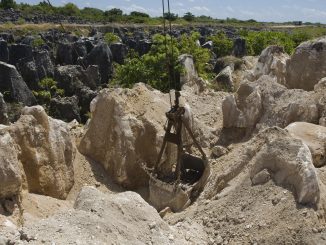
After ignoring the warnings of scientists for years, it seems society is finally starting to wake up to the fact that a deep transition to a low carbon society is necessary. What will this mean for rural areas and community initiatives? And what’s already happening in these places? Eamon O Hara of ECOLISE tells us more.
Beyond Cities
In the past, cities were often characterised as the “locomotives of economic development, and rural areas as carriages being pulled along in the wake of the great modern metropolis”. However, as established models of societal and economic organization come under greater scrutiny in the context of climate and ecological breakdown, the potential of rural areas to deliver innovative, inclusive and sustainable solutions is gaining in recognition.
Research projects such as SIMRA (Social Innovation in Marginalised Rural Areas) and networks such as ECOLISE are uncovering the fact that many thousands of rural communities are already engaged in a process of transitioning to a more sustainable, equitable future, where the focus on localization across multiple sectors is helping to revitalize local economies, improve wellbeing and quality of life, while also greatly reducing climate and ecological impacts.
Concerns about climate change and environmental degradation have become an important new driver of community-led social innovation, covering diverse areas such as community energy, car-sharing and cycling schemes to community gardens, waste management and recycling, and sustainable housing.
Community-Led Initiatives
The scale of projects undertaken varies considerably, depending on the local context and the experience of the community. In the community energy sector, for example, this can range from small-scale neighbourhood projects, such as the Energy Lucioles, a project in Brittany, France, to install 150 m2 of solar panels on a public building, to much larger projects, such as the transformation of the Danish island of Samsø (population 4 000) into a carbon-neutral net exporter of renewable energy.
These community-led initiatives have important environmental impacts, but are also helping to revive local economies and build social capital and resilience. The EU-funded TESS project, which assessed a sample of 63 community-based climate initiatives across Europe, highlighted their “large potential for climate change mitigation” but it also found that, “at least as significant as the direct carbon savings that many of these initiatives are achieving are the wider environmental impacts, the awareness-raising, the social cohesion, the creation of local livelihoods and retention of wealth in local economies and the feelings of empowerment that can come through working together to bring about change.”
While it is difficult to quantify the number of existing initiatives, recent estimates by ECOLISE suggest there are around 1 200 Transition Town initiatives, 15 000 ecovillages and over three million permaculture practitioners driving community-led sustainability projects across the globe. Specifically in Europe, there are also an estimated 2 500 community energy initiatives, 1 500 Slow Food communities (focused on preserving traditional and regional cuisine and encouraging the farming of plants, seeds, and livestock characteristic of local ecosystems) and about 7 000 community-supported agriculture schemes feeding over a million citizens.
Community Supported Agriculture – Urgenci report reveals rapid European growth
The Policy Practice Gap
However, despite this positive momentum, there is a real concern that policy is falling behind and not keeping pace with developments on the ground. Barriers and constraints are increasingly evident, often due to a disconnection between local, grassroot responses and policies and programmes developed at other levels.
In the absence of a supportive policy environment, there is a real danger that the opportunity for wider community engagement and social innovation will be lost, making it increasingly difficult to achieve positive change at the local level. The challenge, therefore, is to create a more favourable enabling environment:
- providing capacity building and tools for community planning;
- removing legislative and administrative barriers;
- integrating the use of Rural Development Programmes (RDPs) with other EU and national funds;
- promoting opportunities to leverage private financing.
Learning from Denmark and Scotland
Some countries and regions are already making good progress in this regard, providing important insights as to how different elements of an enabling framework can be constructed. In Denmark, for example, where 70- 80% of existing wind turbines are community-owned and the rate of renewable energy generation by communities is one of the highest globally, we can clearly see the impact of supportive legislation on the community energy sector.
The Scottish government has also been supporting community-led climate action since 2008, with many positive benefits
The Scottish government’s Climate Challenge Fund (CCF) provides grants and support for community-led projects that reduce local carbon emissions. Since its inception in 2008, the CCF has provided grants totalling £66.2 million to almost 1 000 projects in 549 communities across Scotland.
The projects incorporate a diverse range of activities: from community energy to energy efficiency improvements, to low-carbon travel options and community schemes to tackle waste. The current programme runs from 2018 to 2020 and provides grants of up to £ 150 000 per organisation, per year.
Analysis of data from 132 projects supported in the 2012-2015 period shows a total estimated lifetime emissions reduction of 179 796 tonnes of CO2, with an actual reduction during the projects of 54 209 tonnes of CO2. CCF-funded projects were shown to have many additional positive environmental, social and economic outcomes, including engaging with a total of 78 835 people, creating 188 full-time jobs, recycling 6 000 tonnes of waste and converting 45 000 m2 of unused land into growing spaces. Participating communities are connected via the Scottish Communities Climate Action Network (SCCAN), a network of committed community organisations across Scotland engaged in activities to reduce carbon emissions. For more see Keep Scotland Beautiful
Deep Transition is Coming
As we approach the implementation of the Paris Agreement from 2020, and a new round of EU programming from 2021, all against a backdrop of rising public discontent with regard to government inaction on climate change, it now seems likely that we are finally moving into a period of deeper transformation, as called for by scientists and climate campaigners for many years.
Communities and actors in rural areas are already positioning themselves to be at the forefront of this transformation, but more must be done in order to avert the risk of, once again, being pulled along in the wake of the great urban locomotives.
ECOLISE is the European network for community-led initiatives on climate change and sustainability.





